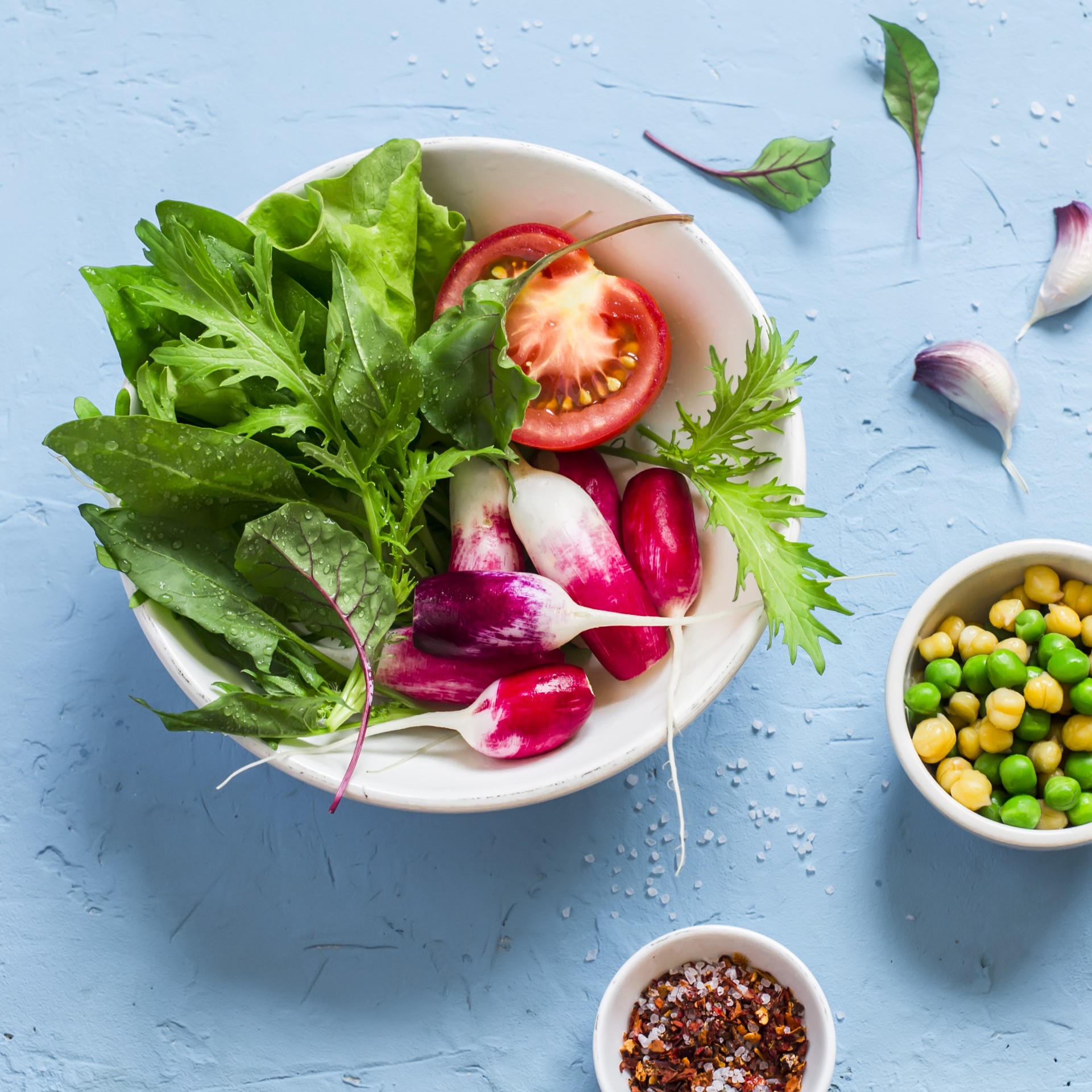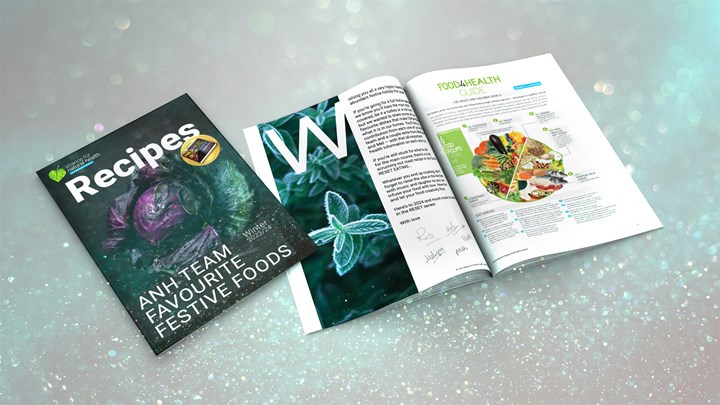Content Sections
People are getting the message loud and clear about the importance of plant foods. The result? More and more are advocating and adopting vegan or vegetarian diets, and many do so with huge passion and drive.
Of course there are good health, ethical and sustainability reasons for going for plant foods as the basis of the human diet. What we address here is what might be the scientific (not ethical or sustainability) reasons for including some food of animal origin to a largely plant-based diet.
The notion that vegans need to supplement with vitamin B12 is perhaps the most potent reminder that vegan diets can be deficient in essential nutrients. But less well known is that vegans and vegetarians may also find it necessary to top up on various other nutrients, such as iron and calcium (for babies in particular), zinc, vitamin K2, omega 3 fatty acids EPA & DHA, as well as fat-soluble vitamin A & vitamin D.
Is this because plant foods are inherently deficient in these nutrients, or is that the plant foods we eat today are somehow different to those with which we adapted evolutionarily? The short answer is: we don’t know for sure. A supplementary answer is: the lack of diversity, nature and form of plant foods we consume today are very different compared with those of our paleolithic ancestors. But then again so is the majority of the animal produce consumed today.
Vegan and vegetarian diets
A plant based-diet is of course a great basis for healthy eating, being high in protective, anti-oxidant phytonutrient compounds, vitamins and minerals, as well as having a high fibre content. These plant foods are highly protective against heart disease and cancer. Most vegans and vegetarians place much more effort on selecting and diversifying their plant food intake than their omnivorous counterparts. This may also mean that some more meat-dependent consumers may themselves be deficient in vitamin C, vitamin E, fibre, folate, and magnesium.
A UK study published in 2014 found the risk of cancers was lower in fish eaters and vegetarians than in meat eaters. Oily fish are of course rich sources of long chain, anti-inflammatory, omega-3, polyunsaturated fatty acids (DHA and EPA). For their DHA and EPA, vegans and vegetarians need to rely on the relatively poor conversion of short-chain Omega-3s to the long-chain forms, that may only be 5-15% efficient. They can also consume DHA supplements from algae, but will still be denied optimal EPA that could otherwise be derived from oily fish.
Everyone can benefit from some background knowledge about the macro and micronutrient content of food, and this is of course important when meat eaters switch to vegan/vegetarian diets. To be healthy, they would need to ensure that appropriate plant-based protein foods are used instead of the meat, fish, eggs and animal-derived cheese etc. For example, a less health-conscious or less- informed vegan/vegetarian might be replacing animal protein with excessive grains and starchy carbohydrates, which risks swaying things over to an energy-dense, rather than nutrient-dense, carbohydrate-heavy diet, with all the associated risks.
The B vitamin/B12 issue
B vitamins are essential for heath, and necessary for cell division and metabolism, and energy production. They are plentiful in meat, eggs and dairy. Whilst B1, B2, B3, B5, B6, B7 and folate are found (in varying quantities) in vegetable sources, this is not the case for Vitamin B12. B12 deficiency is very serious, frequently misdiagnosed and common in all ages. Deficiency may lead to megaloblastic anaemia and neurological disorders. In infants it can cause irreversible symptoms similar to those of autism. It is essential that those not eating meat get adequate B12 from a supplement or from fortified foods if they don’t want to put their health at serious risk.
What about bone health?
If you don’t eat dairy, or foods that contain fat soluble vitamin D, your doctor may worry about the effects on your bone health. However, a 2015 study concluded that plant-based diets are not detrimental to bone in young adults. Increased plant and vegetable intake increases alkalinity, which benefits bone mineral density. However, the American Dietetic Association and Dietitians of Canada warn that “Calcium intake for vegan and macrobiotic children may be below current recommendations”. In addition, they warn that compounds such as phytates in whole grains, legumes, nuts and seeds can impair calcium (and iron and zinc) absorption. They recommend support from dietetic professionals for vegetarian mothers and babies.
Vitamin K2 is key for bone health, and this is found in grass-fed meats, as well as in fermented vegetables.
Some risks of particular food groups and preparation methods
Certainly, some studies on animal protein diets have led to some pretty negative conclusions. The Longo study has several methodological problems that do not exactly justify framing animal protein as the new ‘smoking’. But speaking of smoking, we have argued that the problem with meats may have more to do with such things as overcooking, including the production of carcinogenic heterocyclic amines and pro-inflammatory advanced glycation end (AGE) products. In addition, meat raised in concentrated animal feeding operations (CAFOs), injected with antibiotics and growth hormones and fed genetically modified (GM) grain is far from a healthy source of protein. Ditto for processed meats that have been classified in 2015 as proven human carcinogens by the International Agency for Research on Cancer (IARC), possibly owing to their nitrite preservative contents. Studies of meat-eaters don’t tend to remove those that consume these known, problematic forms of meat form their analyses.
Those whose diets include plenty of wheat, barley and other gluten-containing grains need to be aware of the risks of gluten and its role in inflammation and many gut-related health issues. Lectins, which can occur at particularly high levels in some legumes and solanaceous vegetables (nightshade family e.g. tomatoes, peppers [capsicum], aubergine, etc) if uncooked or undercooked can also interfere with gut lining integrity and contribute to leaky gut in sensitive persons.
We have previously highlighted the risks of acrylamide for carbohydrates cooked at high temperatures.
Balancing the risks
It’s clear the issues aren’t straightforward, and it’s of benefit to be informed before before cutting out or increasing particular food groups. Children and pregnant/lactating women are particularly at risk. The American Dietetic Association and the American Academy of Pediatrics “state that a well-planned vegan diet can, in fact, support adequate nutrition in the growing child”. However, should adequate care not be taken, things can go badly wrong.
Interestingly, a 2016 study tells us that meat eaters in UK seem to have the same mortality rate as vegetarians despite having greater risk of some diseases e.g. heart disease. So this particular study suggests that UK vegetarians do not appear to be making better health choices than UK meat-eaters. But another new study from a group at Oxford University which evaluated data from the European Prospective Investigation into Cancer and Nutrition [EPIC] tells us “the long-term health of vegetarians appears to be generally good, and for some diseases and medical conditions it may be better than that of comparable omnivores”. The authors then add “much more research is needed, particularly on the long-term health of vegans”. In essence, the scientific jury is still out.
Taking into account the evidence as it stands currently, and respecting our passion for freedom of choice, we provide for you below our overall, summary advice to vegans, vegetarians and omnivores:
Vegans and vegetarians:
- Ensure a very diverse plant-based diet, and consume B-complex supplements (delivering at least 10 mcg/day of B12)
- Follow the recommendations of the Food4Health vegan guidelines.
- Consume an algal DHA food supplement and ample amounts of seeds rich in short-chain Omega-3 alpha-linolenic acid (and not high in corresponding Omega-6 which can adversely affect conversion to the short-chain Omega-3 forms). These include: flaxseeds, chia seeds, walnuts, hemp seeds, mustard oil, seaweeds, beans, squash and leafy greens. At least 1000-5000 mg of Omega-3 polyunsaturated fatty acid should be consumed daily.
- Consume olive and coconut oils for cooking or on vegetables as monounsaturated fatty acids and saturated fats respectively to avoid skewing your Omega 6:3 ratio in favour of pro-inflammatory Omega-6s.
- If you feel anything other than bursting with health and vitality, see a nutritional practitioner who will be able to evaluate your diet, assess your nutrient status, and make recommendations accordingly.
Omnivores:
- The basis of your diet should be, like a vegetarian’s or vegan’s, a very diverse, plant-based one, as per the Food4Health plate.
- Don’t brown or blacken meats by excess heat in cooking or barbeques
- Avoid all processed meats and moderate intake of red meats, the former being declared as carcinogenic to humans, the latter as probable carcinogens by the International Agency for Research on Cancer. In the latter case, this perhaps at partially down to how animals are reared and how red meats are often prepared
- Opt for grass-fed over grain-fed meats where possible
- Consume wild caught or sustainably farmed fish twice weekly, especially oily fish rich in long-chain Omega-3s, and/or take high-quality fish oil supplements, while minimising intake of Omega-6 fatty acids from vegetable/plant seeds and oils
- It’s not just vegetarians and vegans who can benefit from nutritional advice, should you feel fatigued or in any way less than perfectly healthy!
Further information about healthy eating can be found in our Food4Heath plates and supporting articles:
ANH-Intl Adult eating guidelines
ANH-Intl Vegan eating guidelines
ANH-Intl Kids eating guidelines








Comments
your voice counts
31 August 2016 at 7:23 pm
I have been a Vegan,mostly raw food for forty years,now 73 and in excellent health. surely researchers should be looking carefully at those of us who have followed a Vegan dietary paths for many decades if they are so concerned to know what works long term. Seems to me the Vegans who should be of concern are those who are only interested with avoiding all the soulless cruelty of animal husbandry with little concern for their own health. Dr Greger, nutrition.org is a great source of information for those embarking on a Vegan way of eating
01 September 2016 at 4:57 pm
It sounds like you take good care with your diet, Tony! Thanks for the information!
01 September 2016 at 2:41 pm
Absolutely love this article. Sound advice with no particular bias. Excellent!
01 September 2016 at 4:54 pm
Thank you so much Shona! Yvonne
01 September 2016 at 4:58 pm
I'm vegan for health, ideological and ecological reasons and my health has never been better. I occasionally supplement with B12 and I do get plenty of sunshine as I live and work in South Florida quite frequently. I do get regularly tested for deficiencies and never have any - this is because I follow a plant-based vegan whole food diet. There are plenty of vegans who do not follow a healthy diet (I know some who exist on chips and donuts for example). Obviously the data are skewed and it would be far better to take into account people who follow a healthy plant-based vegan diet. I believe that if this were the case you'd see a different picture. The closes the major research has come to looking at this kind of population is in the AHS 1&2 studies. Do google them - they make interesting reading. These people do fare better in all measures of health than the general population.
01 September 2016 at 9:20 pm
So basically, if you're gonna be a vegetarian and just eat chips don't expect to be healthy; eat a balanced diet and take the appropriate supplements and none of these negatives apply and if you eat meat don't eat it too much of it as it'll take you half an hour to go for a poo every morning - if you're lucky to go every morning-, overwork your whole digestive system over time and increase your risk of cancer and heart disease. Of course this is only talking about science and health and not the ethical and environmental consequences of eating meat.
Oh and as for vitamin D go out in the sun!! I haven't eaten meat for almost 10 years and my vitamin D level was 90, well above guidelines-I've never supplemented either, when I personally know at least 3 people who have had vitamin D deficiency and eat lots of meat.
This article fails to mention also the positive impact removing animal protein from the diet and replacing it with healthier plant based proteins can have on various health conditions ie. Diabetes it has been shown to greatly help control blood sugar levels, and improves kidney function in kidney disease.
If you eat a balanced vegetarian diet you will not miss out on a single nutrient , dairy products are abundant in B12. (I mention this because it's relevant to the group this has been posted in) I do not condone following a vegan diet without taking adequate supplements and monitoring vitamin levels.
The problem is you can't really write a "scientific" article about being "vegan or vegetarian" and then versus them both against eating meat because they are two completely different diets in terms of obtainable nutritional content.
Oh and look up acidity/alkalinity in the human body and the problems that too much acid causes. Eating meat lowers the pH level while eating greens elevates it (makes it more alkaline). This is the main line right now of curing disease through diet.
02 September 2016 at 3:18 pm
I don't think the research on meat eating is reliable. You are not looking simply at meat but meat which has had numerous chemicals pumped into it. Much of it is from animals who are forced to live inside leading very unhealthy lives and suffering from all sorts of illnesses. The meat has far less nutrients than that produced from outside animals. How do you know that cows raised organically and pasture fed all the year round produce unhealthy food? The research has never been done.
Your voice counts
We welcome your comments and are very interested in your point of view, but we ask that you keep them relevant to the article, that they be civil and without commercial links. All comments are moderated prior to being published. We reserve the right to edit or not publish comments that we consider abusive or offensive.
There is extra content here from a third party provider. You will be unable to see this content unless you agree to allow Content Cookies. Cookie Preferences